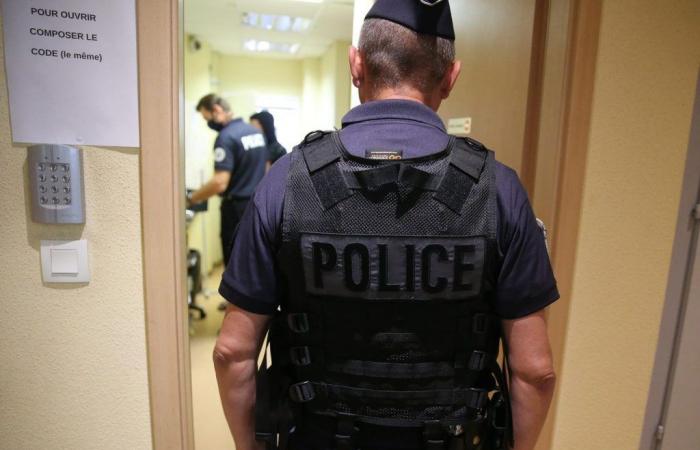A step forward for lawyers, a real cause for concern for the police: from this Monday, July 1, two important changes come into force in the conduct of police custody. First of all, no hearing can now start without the presence of a lawyer. Furthermore, the person in custody may notify any person of their choice, including those outside their family.
“We are going to delay the investigative work while risking that the person could warn one of their accomplices,” laments Frédéric Lauze, general secretary of the national police commissioners’ union. “It is very good to strengthen the rights of the defense because in police custody the power of the police or the gendarmes is very important,” replies Me Romain Boulet, co-president of the association of criminal lawyers.
It is to comply with European provisions that France adopted, last April, a law to reform police custody, applicable from July 1. The first change concerns the presence of a lawyer. Until then, there was a waiting period of two hours. Before hearing the person in custody, the police warned the lawyer. But if, after two hours, the latter had not arrived, the investigators could start the interview.
From now on, no interrogation will be able to begin without the presence of the defender. If the appointed lawyer cannot be present within this two-hour period, the police will have to contact the president of the bar to obtain the appointment of another court-appointed lawyer. “As this is generally permanent, it may be available very quickly,” says Me Boulet.
« A lot can happen in the first two or three hours. »
Some police officers say that the lawyer will become the “master of clocks”nothing being able to be done before his arrival. “We also hear that the lawyers are going to deliberately not come right away to block the work of the police. It’s absurd. Our interest is to be close to our customer as soon as possible. Simply, sometimes it is not easy to free yourself immediately for the lawyer. He may be at a hearing or visiting another client in custody,” emphasizes Me Boulet.
“In certain investigations, it is sometimes crucial to question the person in custody very quickly. A lot can happen in the first two or three hours. If the lawyer delays in coming, we will lose precious time,” says Frédéric Lauze.
However, there are two exceptions to the rule. The person in custody may first agree to be heard without waiting for their lawyer. In exceptional circumstances, the public prosecutor may also give the green light to the start of the hearing. He may take this decision if he considers that any delay in the start of police custody may compromise the procedure or endanger the life of another person.
An expanded right to information
The other controversy concerns the person that the accused can inform of his police custody. It should be noted that the latter does not make this call directly. It is the police officer who calls the designated person to tell him that from a certain time, Mr. X or Y will be placed in police custody.
Until now, the accused could notify his employer but also, according to the code of criminal procedure, “a person with whom she usually lives or one of her parents in a direct line or one of her brothers and sisters”. This right to information is now extended since the person in police custody also prevents “any person of his choice”. Which, according to the police, could make it possible to warn an accomplice or another individual involved in the case.
“It is very serious because the person, thus warned, could very well hide evidence, clues or put pressure on witnesses,” believes Frédéric Lauze. “If the person contacted really has something to reproach himself for, it is difficult to see the person in custody directing the police on his trail,” replies Mr Boulet, adding that before notifying the designated individual, the police have 3 hours to check the profile of the person concerned. And here again, the magistrate in charge of the investigation can decide that the relative is not notified, or that he is notified later, if he thinks, for example, that evidence may be hidden or threats made.
Putting lawyers and police officers “on the same level”
While welcoming this reform, Mr Boulet believes that it does not go far enough. “We should give the lawyer the right to have access to the entire file during police custody. Because today, you can certainly assist your client and hear the police officers’ questions. But without knowing what precise elements appear in the procedure, he indicates. “It is an obstacle to properly defending a person at a time when they are deprived of their liberty and sometimes subjected to strong pressure from investigators.”
Commissioner Frédéric Lauze believes that the reform amounts to putting ” at the same level “ the lawyer and the police. “The first is there to defend his client, but we are led to believe that the police are there to lead the accusation and investigate only the incriminating evidence. Which is false. The only concern of the police is to elucidate the case, by investigating both the incriminating and the exonerating evidence. If they discover that the person in custody is not the cause, they will have no problem exonerating him.”





